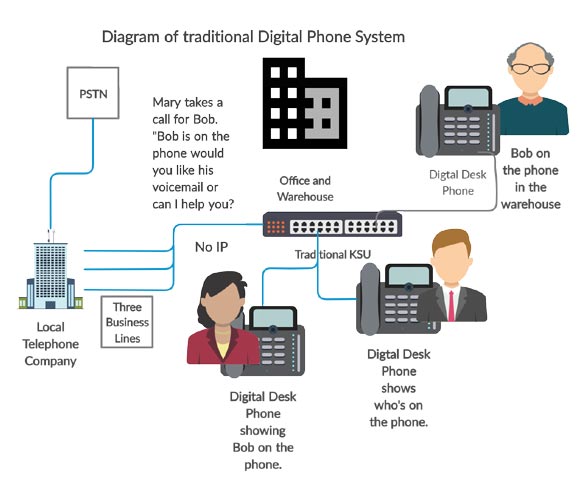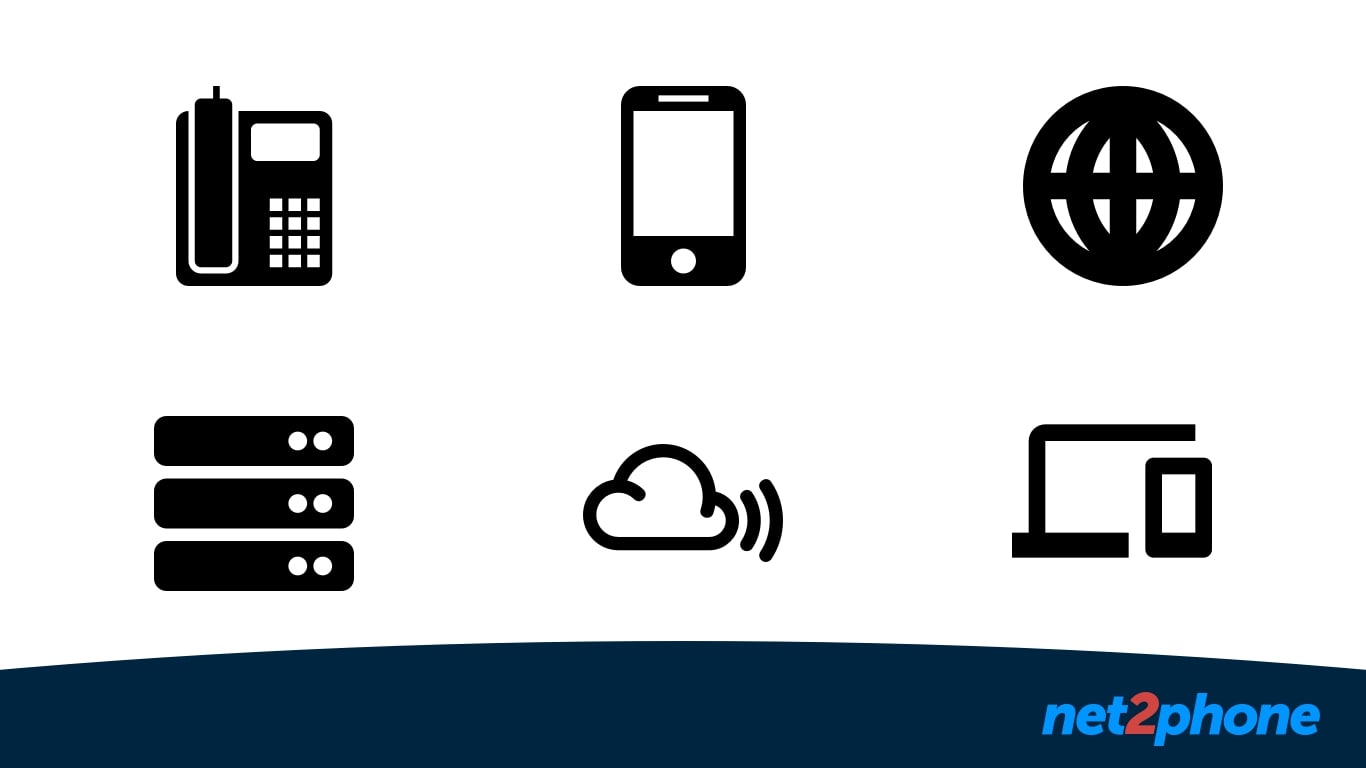Tailored Communication Solutions: Phone Systems Houston TX for Service Success
Wiki Article
The Development of Phone Systems: From Landlines to VoIP
The world of phone systems has actually gone through a remarkable makeover over the years. In this article, we will check out the trip of phone systems, starting from the very early telephone innovation to the introduction of electronic phone systems, and ultimately, the advent of VoIP. As we dive right into the future of phone systems, it comes to be apparent that VoIP is right here to remain, shaping the method we communicate and link in the electronic age.Early Telephone Innovation
Very early telephone modern technology's advancement played a crucial role in transforming interaction methods. At the center of this technical improvement was Alexander Graham Bell, that is credited with designing the telephone in 1876. Bell's creation noted a significant turning point in the history of communication, as it allowed for real-time, long-distance conversations to take place.The early telephone systems counted on landlines, which were physical links in between two telephones through a network of wires. These landlines made it possible for voice signals to be transmitted over lengthy ranges, bringing individuals closer with each other and assisting in immediate communication. While the preliminary telephone systems were limited in extent and schedule, they laid the structure for the growth of even more sophisticated communication modern technologies in the future.
One of the essential developments in early telephone modern technology was the intro of the switchboard system. The switchboard permitted multiple telephones to be connected to a main exchange, enabling users to make contact us to various locations. This technology greatly expanded the reach and availability of telephone communication, as it eliminated the demand for a straight physical connection between 2 telephones.
Shift to Digital Phone Equipments
The development of telephone technology brought about the transition from landlines to digital phone systems, marking a significant shift in the method interaction was performed. Digital phone systems, also referred to as Voice over Web Protocol (VoIP) systems, use web connections to transmit voice signals rather of traditional copper wires. This shift to electronic phone systems has produced various advantages for people and organizations alike.One of the key benefits of digital phone systems is price financial savings. VoIP systems remove the need for numerous phone lines, as all phone calls are sent over the net. This results in lowered infrastructure expenses and reduced month-to-month bills. Furthermore, international calls can be made at substantially lower rates compared to traditional phone systems.
Another advantage of electronic phone systems is improved functionality. VoIP systems offer a wide variety of features such as call forwarding, voicemail, phone call recording, and video clip conferencing. These features enhance interaction effectiveness and allow companies to collaborate better. Moreover, electronic phone systems can easily integrate with various other service communication devices such as email and instantaneous messaging, providing a linked and structured communication experience.
Introduction of Voip Technology
With the introduction of VoIP technology, the landscape of phone systems started to shift towards a more effective and cost-effective communication solution. VoIP, or Voice over Internet Protocol, permits users to make phone calls over the web as opposed to traditional landlines. This technology converts voice signals into digital packets and sends them over data networks, getting rid of the demand for devoted phone lines.

Another advantage of VoIP is its flexibility and scalability. With traditional phone systems, eliminating or including phone lines can be a difficult and expensive process. Nonetheless, with VoIP, users can conveniently include or get rid of lines as needed, making it a more scalable option for services of all sizes.
Additionally, VoIP technology offers a wide variety of functions that enhance interaction effectiveness. These features include voicemail to email transcription, call forwarding, meeting calling, and auto-attendant systems. These functions not just boost efficiency yet additionally make communication extra hassle-free and easily accessible.
Benefits of Utilizing Voip
Just how does VoIP technology offer substantial advantages over typical phone systems? VoIP, or Voice over Internet Procedure, has actually revolutionized the method we communicate by providing countless benefits that conventional phone systems just can not match.Unlike conventional phone systems that count on physical phone lines, VoIP makes use of an internet connection to transmit voice information. In addition, VoIP systems commonly offer competitive pricing plans that consist of endless residential calling, further reducing interaction expenditures.
Secondly, VoIP innovation supplies increased adaptability and scalability. Traditional phone systems are restricted by the number of physical phone lines, making it challenging and pricey to include or get rid of lines as required. In contrast, VoIP permits for very easy scalability, permitting businesses to add lines or expansions without the need for added hardware.
Another advantage of Visit This Link VoIP is its rich attributes and combinations. VoIP systems often include a variety of innovative features such as voicemail, telephone call forwarding, call recording, and automated attendants. These functions improve performance and client service. VoIP can effortlessly incorporate with various other interaction devices like email, immediate messaging, and video conferencing, giving an unified interaction experience.
Last but not least, VoIP deals enhanced mobility and ease of access. With VoIP, customers can make and get phone calls from anywhere with a web connection, permitting for remote job and organization continuity. This level of availability is especially advantageous for companies with remote employees or numerous office locations.
Future of Phone Solutions
As modern technology continues to development, the future of phone systems holds the guarantee of also better development and seamless communication. With the fast advancement of expert system (AI), virtual truth (VIRTUAL REALITY), and the Net of Points (IoT), the opportunities for phone systems are increasing beyond typical voice calls.One secret facet of the future of phone systems is the assimilation of AI. AI-powered virtual aides, such as Siri and Alexa, have currently ended up being commonplace in our homes. Houston Phone Systems Houston TX. In the future, these aides will likely play a bigger role in handling our phone calls, organizing conferences, and even conducting conversations on our part. AI will likewise allow sophisticated call routing and filtering, making certain that phone calls are directed to the suitable individual or department without the requirement for manual treatment.
Another area of growth is the integration of phone systems with various other interaction networks. With the surge of this contact form messaging applications and social media sites systems, customers are significantly changing towards text-based interaction. In the future, phone systems will effortlessly integrate voice, video clip, and text-based interaction networks, enabling users to switch over between them easily.

Conclusion
Finally, the development of phone systems from landlines to VoIP technology has actually changed communication. Very early telephone innovation laid the foundation for digital phone systems, which paved the way for the introduction of VoIP. The benefits of utilizing VoIP, such as cost-effectiveness and flexibility, make it a preferred option for numerous people and businesses. As innovation remains to advancement, the future of phone systems holds the capacity for additional improvements and renovations in communication efficiency.
In this write-up, we will check out the journey of phone systems, starting from the very early telephone modern technology to the intro of electronic phone systems, and finally, the development of VoIP. Digital phone systems, likewise understood as Voice over Internet Protocol (VoIP) systems, make use of web connections to transfer voice signals instead of conventional copper cables. With traditional phone systems, adding or removing phone lines can be a troublesome and expensive procedure. my latest blog post Unlike traditional phone systems that depend on physical phone lines, VoIP uses a net link to transfer voice information. Standard phone systems are limited by the number of physical phone lines, making it costly and hard to add or eliminate lines as required.
Report this wiki page